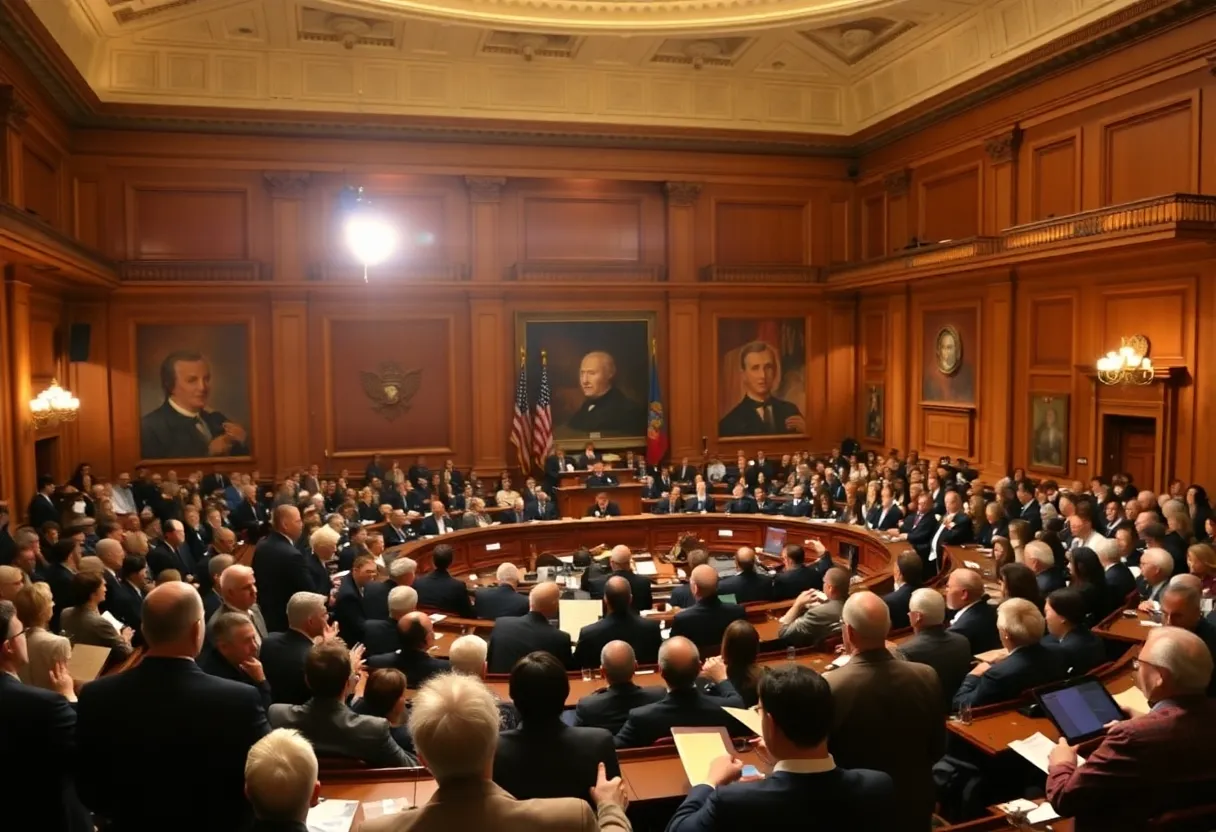

Debates over proposed pay increases for Michigan lawmakers at the State Capitol.
Want to target the right audience? Sponsor our site and choose your specific industry to connect with a relevant audience.
Prominent brand mentions across targeted, industry-focused articles
High-visibility placements that speak directly to an engaged local audience
Guaranteed coverage that maximizes exposure and reinforces your brand presence
Interested in seeing what sponsored content looks like on our platform?
May’s Roofing & Contracting
Forwal Construction
NSC Clips
Real Internet Sales
Suited
Florida4Golf
Click the button below to sponsor our articles:
Sponsor Our ArticlesA state commission has proposed a 25% pay increase for Michigan lawmakers and top elected officials, the first increase since 2002. The proposal faces significant opposition in the Legislature, with lawmakers hesitant to raise their own salaries amid stagnant and reduced compensation. A key concern is the timing, as any approved increases would not benefit current officeholders until after the next elections, complicating the discussion on public official pay.
Lansing, Michigan – On April 30, a state commission proposed a 25% pay increase for Michigan lawmakers and top elected officials, a recommendation that faces significant opposition within the state Capitol. This proposal, put forth by the State Officers Compensation Commission, is seen as essential for attracting qualified candidates to positions of public service, particularly as no pay increases have been granted since 2002.
Under provisions of the Michigan Constitution, any pay increase recommendations from the commission must receive affirmative votes from both chambers of the Legislature to take effect. Despite the commission’s justification for the increase, including considerations of inflation and comparison with salaries in similar states, early reactions indicate a reluctance amongst lawmakers to proceed with the hike.
As it stands, the current salaries for Michigan’s highest officials have not only stagnated but have seen reductions; the governor, lieutenant governor, attorney general, secretary of state, and legislators have all endured at least one pay cut since 2002. For instance, the salary of Governor Gretchen Whitmer presently stands at $159,300, accompanied by a $54,000 tax-free expense allowance, which positions her 19th nationally amongst her peers. Notably, her salary is lower than the $177,000 she received in 2010, which included a higher tax-free expense allowance.
The Michigan Legislature’s salaries reflect a similar stagnation. Lawmakers are currently earning $71,685 plus a $10,800 tax-free allowance, ranking fourth nationally, yet this is notably less than the $79,650 and $12,000 they received in 2010. Additionally, the proposal includes a recommended $18,000 expense allowance for the state attorney general and secretary of state’s offices if the pay hike is approved.
In comparison, Michigan Supreme Court justices received a pay increase in 2023 that elevated their salaries to $181,643, a figure still below that of Michigan Court of Appeals judges, who earn $195,625. The disparity highlights ongoing concerns regarding compensation among different tiers of the state’s judicial and executive branches.
House Speaker Matt Hall has voiced strong opposition to the commission’s recommendation, affirming that lawmakers would not consider raising their own salaries. This sentiment appears to resonate with other members of the Legislature, indicating a challenging path ahead for the commission’s proposal.
If approved, the pay increases would not take effect until after the next elections, meaning that current officeholders would not directly benefit from the changes. This stipulation could further complicate discussions surrounding the recommendation, as it may feed into broader political calculations about fiscal responsibility and voter sentiment regarding government pay.
In summary, while the State Officers Compensation Commission has made a significant recommendation to raise salaries for Michigan’s top officials by 25%, widespread resistance among lawmakers coupled with the historical context of salary stagnation and cuts since 2002 suggests that substantive changes may be difficult to achieve in the near future. The legislative approval process will be closely watched as debates over public official compensation continue to unfold.
News Summary In a coordinated effort, Michigan State Police apprehended four suspects linked to pharmacy…
News Summary Recent data from the University of Michigan highlights a dramatic decline in consumer…
News Summary As the tenth anniversary of the Obergefell v. Hodges ruling approaches, advocates express…
News Summary The collectible trend of Labubus is sweeping through Michigan malls as parents and…
News Summary Guitarist and activist Ted Nugent appeared before a Michigan House committee to express…
News Summary Authorities in Berrien County, Michigan, are investigating a package theft incident from residential…